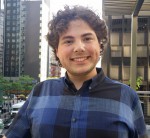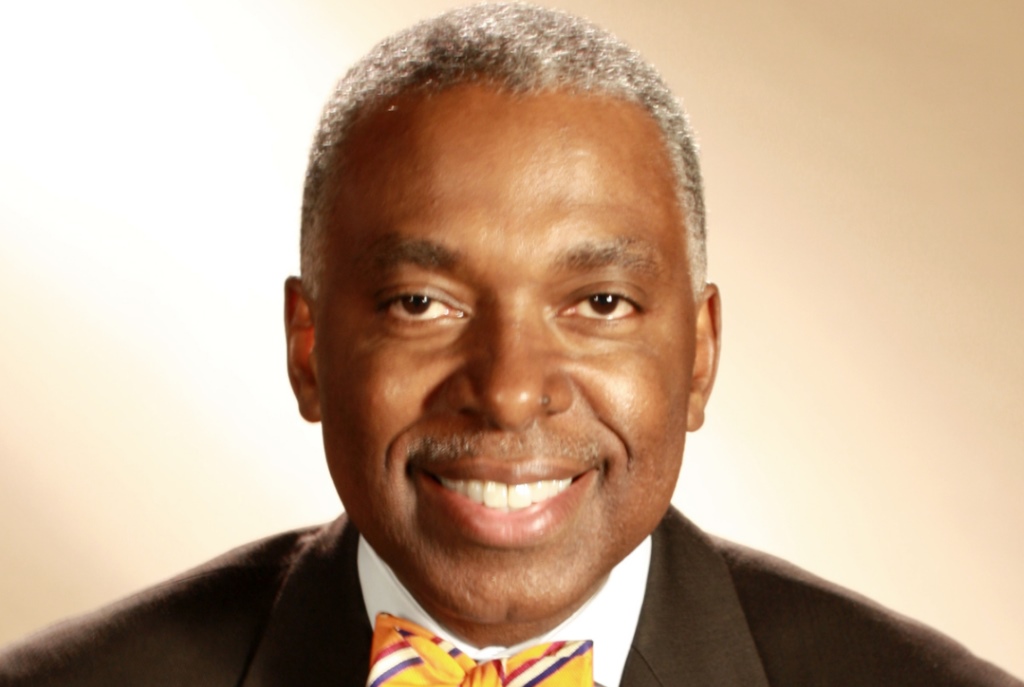Watching Over the City’s Health
Health Commissioner Bevan Baker has had success, but says much more is needed.
Growing up in North Carolina, Bevan K. Baker was always around health professionals. His grandmother was a midwife. His mother was a nurse and, according to one account, did mission work and took in people cast out by their families during the AIDS epidemic. “I got, at a very early age, to see a commitment to service and caring for people,” Baker recalls.
Baker is the 16th Commissioner of Health for the City of Milwaukee. He was appointed (by former Health Commissioner Seth Foley) to become Chief Operating Officer for the City of Milwaukee Health Department and served from 2001 to 2004. He became Acting Commissioner of Health on May 14th, 2004 and then was sworn in as Commissioner on August 6th, 2004 after being nominated by Mayor Tom Barrett. In that position, the always bow-tied Baker has been involved in many different programs and efforts, including those to reduce lead poisoning, infant mortality and teen pregnancy. In all three cases the city has made considerable progress.
Baker says that, as a young man, he also dreamed of being starting point guard for an NBA team like the Milwaukee Bucks.“That’s just not gonna happen. I can still dream that, though. I guess I could play an old-timer’s game or something.”
Perhaps the biggest influence in Baker’s life was his father. He was a military veteran and a master carpenter, but didn’t have a college degree. “And he’s the most brilliant man I ever knew,” Baker says. “He told me simply that if you learn your entire life, then you’ll be okay. He instilled into me and my siblings an enthusiasm for learning. And he said, ‘Go out, learn and be compassionate and care about your community and care about people that you’re next to. And learn as much as you can about how to make things better.’”
Baker received his Bachelor’s degree in Medical Technology and minor in Chemistry from Winston-Salem State University, and a Masters degree in Health Administration from the Medical College of Virginia. He developed a love for science, chemistry, physics and microbiology. He is also board certified in Hematology as a medical technology. He is a Fellow in the American College of Healthcare Executives.
Before coming to Milwaukee, Baker served as Chief Operating Officer with the Health Choice Network, Inc. in Miami, Florida and the Associate Director of Administration for the Addiction Research and Treatment Corporation in Brooklyn, New York.
He cites several reasons for taking a job in Milwaukee: “Number one was the opportunity to do something I love, which is working in health care delivery and public health, but also come to a city that’s great to raise a family. So when the opportunity came to work for the health department, I seized it. And then as fate would have it, there was an election, a new mayor and an opportunity to throw my hat into consideration for health commissioner. It would have been a nonstarter if Milwaukee wasn’t great place to live, work and play.”
Baker also currently serves as Assistant Clinical Professor with the UW-Milwaukee and as an adjunct faculty member of the Joseph J. Zilber School of Public Health. In November 2004, Governor Jim Doyle appointed Baker to serve on the Governor’s Public Health Council which advised the Secretary of Health and Family Services, the Governor and Legislature on progress in implementing the state’s 10-year public health plan. In February 2005, Milwaukee County Sheriff David Clarke appointed Baker as the Milwaukee County Emergency Public Health Preparedness Director. And in January 2006, the Governor appointed Baker to serve on his e-Health Care Quality and Patient Safety Board to develop a strategic plan for statewide adoption and exchange of electronic health records in five years.
He has received many awards throughout his career, including the 2002 Wisconsin Hospital Association’s Young Healthcare Executive of the Year.
Baker is the city’s chief advisor on health. He provides leadership and oversees the Health Department’s various departments in their collective efforts to promote the health and well-being of all citizens. He says his department responds daily to the needs of citizens as well as addressing things that no one sees or understands, the behind-the-scenes things that keeps the city running.
His work includes the whole life cycle from the first year of infancy and early education through adolescence and beyond. He makes sure that “any type of condition that can impact the health and welfare of individuals is addressed.” He also deals with healthcare policies and “the geopolitical” to make sure people have access to affordable care. And there are “so many things we do to make sure that the consumers are protected,” he notes. He has professionals and laboratory scientists monitoring the water quality and even investigating restaurants. They also go into neighborhoods to survey the needs of the community.
“The thing I’m always the most excited about is the fact that we have folks who have been doing it [working in public health] for so very long, this is their life and their passion. I always joke that once you work in public health, you’re always a public health professional because you get the public health bug, no pun intended.”
“It’s really an opportunity to impact where you live, work and play. If you do public health, you’re making Milwaukee better, you’re making Wisconsin better and you’re making the nation better.”
The health department also works with the police department, the fire department, neighborhood services and more. The public health system is a continuous loop of services, health centers and hospitals. He also works very closely with advocates of healthcare such as the United Way of Greater Milwaukee and Black Health Coalition of Wisconsin. “Public health is about partnerships.”
“It is never, ever boring. We never know what we are going to see.”
Baker has been involved in an effort to reduce infant mortality, which has had success, though he notes the effort still needs more buy-in and funding from all institutions in the city. His department has worked cooperatively with United Way on a hugely successful effort to slash the rate of teen pregnancy, which received national attention from Governing magazine. He has overseen the city’s nationally recognized program that has greatly reduced the number of city children with lead poisoning.
“Perhaps the best part of my job is when I’m walking, whether it be in the neighborhood that I live in or another part of the city, and someone comes up to me and they’re pleased with the work that we’re doing or concerned about what we’re currently working on and I get a chance to interact with them right then and there. That’s magical because it brings importance to the work you do. And it gives me an opportunity to let them know that I’m with you, I’m working for you and we’re here to make Milwaukee better.”
In terms of health care’s future, he says it is “moving more from direct care to population-based health and outcomes. It means that the work we do in public health, and the population health work that we do, it’s the future and it’s here to stay. We have to prevent disease before it happens. We have to make certain that there are outcomes, that we’re changing [the] lives of people. We need to make certain that you’re gonna have similar outcomes no matter what zip code you live in the great city of Milwaukee.”
While Milwaukee is one of the top 40 healthiest cities and a national model for lead poisoning prevention, “there are health disparities and racial and ethnic disparities that have made our challenges very tough,” Baker notes. “I don’t think they’re insurmountable, but I do think it’s gonna require us blending all our available talents to address it.”
Among Milwaukee’s strengths, he says, is its safe drinking water, which he believes the best in the world. “I think we have the safest and most precious water and we have people committed to that as we become the water technology hub for the world.”
But other areas need to be addressed. “We have to address violence as a public health concern and we are doing that,” he says. “Milwaukee’s addressing that with all hands on deck.”
When asked if not having a medical degree has impacted his career in any way, he says that he has several professionals advising him, but his training as a laboratory scientist allows him to understand healthcare “from the bottom up.” (A medical degree is not a requirement for the job.)
“I can sit in a room with clinicians and doctors and nurses and physical therapists and nurse practitioners and respect what they do and understand what they do,” he says. “It gives me compassion for the hard work that men and women who have chosen the medical profession [do], just what they’re up against. And I’ve learned so very much, if I went back and got 10 medical degrees, I don’t think it would make a difference because I’m learning every day.”
As for his private life, Baker says he has a wonderful wife and two wonderful children and gives as much time as he can to them, but wishes he could give them more. “My priority has always been to grow and support and be there for my family. Right now I have school-age children. I just want to be a good father and husband.”
Baker’s trademark is the bow tie he wears at nearly all public appearances. That’s in homage to his father. His father only rarely dressed up, but he had a huge collection of bow ties and taught Baker how to tie them. After his father passed away during Baker’s first semester of graduate school, he found hundreds and hundreds of bowties from the 1940s, ’50s, ’60s and ’70s in his father’s collection. He couldn’t just throw them away, so he started wearing them and has done so ever since.
Besides, when working in the lab, there’s much less chance for a bow tie to be ruined by accidentally spilling things on it, he notes. He says he thinks there’s a renaissance of interest in bow ties. “I don’t take credit for bringing them back, but I do take credit for keeping them here.”
What’s most striking about Baker is his perpetual optimism. “The future is much brighter than many think,” he says. “I think that there are young, bright youth who are going to find that Milwaukee is the freshest breath of air that one can find. And I think that we’re building tomorrow, today — and it’s gonna be wonderful.”
If you think stories like this are important, become a member of Urban Milwaukee and help support real, independent journalism. Plus you get some cool added benefits.
Political Contributions Tracker
Displaying political contributions between people mentioned in this story. Learn more.
- March 30, 2016 - Tom Barrett received $100 from Bevan K. Baker
- August 29, 2015 - Tom Barrett received $25 from Bevan K. Baker





















